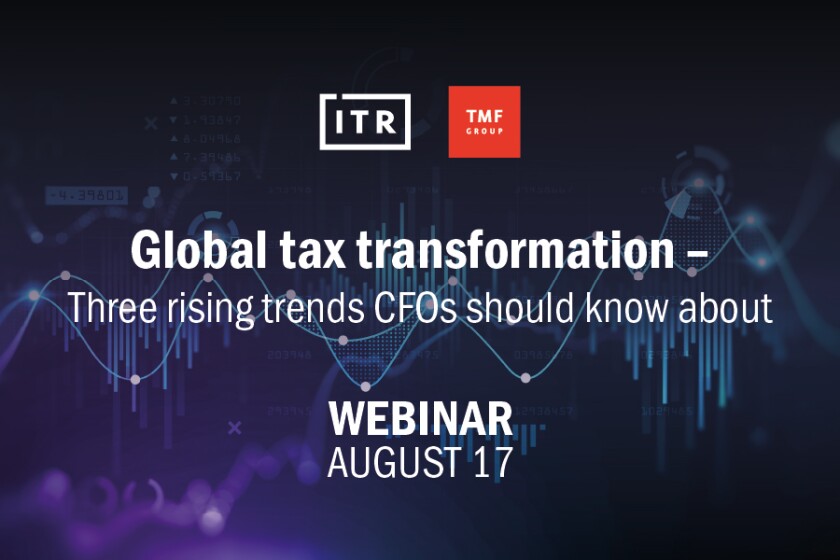Register here for ITR and TMF Group’s webinar: Global tax transformation – Three rising trends CFOs should know about.
Global tax trends indicate a mixture of good and bad news for tax teams, creating an environment in which risk and opportunity sit side-by-side. This is according to research by TMF Group, published in its Global Business Complexity Index (GBCI) 2022.
Tax authorities are becoming stricter: the percentage of jurisdictions that allow companies to voluntarily correct their tax returns without receiving a fine has decreased since 2020. Authorities are also making use of big data to target companies deemed to be high-risk.
However, jurisdictions are increasingly bringing their tax policies into alignment, which creates opportunities for efficiency. Authorities are also displaying a desire to work with and support companies. While 27% of jurisdictions reported that no notice was needed before a tax audit in 2020, this has dropped to 19% in 2022.
In this mixed environment, tax teams should keep on top of the changes, and the risks and opportunities they bring, to protect and advance their company.
Join TMF Group’s tax experts for advice on how to find success in a climate of growing global alignment, stricter governance, and increased digitalisation.
Increased global alignment of accountancy and tax principles
Jurisdictions are increasingly bringing their tax principles into alignment, easing friction for multinational businesses. How can tax teams take advantage of this to increase efficiency – and how can they manage any short-term complexity while adjusting to the changes?
The OECD-brokered 15% global minimum corporate tax rate will be rolled out from 2023 via a stepped approach. How should large and medium-sized companies, the first to be affected, prepare?
The 15% global tax will have a particular impact in jurisdictions with low or no corporate tax rate, such as the United Arab Emirates (UAE). How can companies operating in these areas contend with challenges including a lack of historical knowledge and resources for coping with corporate taxes?
Governments stricter but also more supportive
Governments are creating tax audit plans and targeting companies operating in areas where tax is seen as a risk. How can tax teams help prevent their companies being labelled as high-risk?
Cooperative compliance programmes are on the increase, particularly in Europe. How can companies use clear communication to work with supportive authorities, and to access the benefits of cooperation?
Digital approach to accounting and tax still on the rise
The trend towards e-invoicing in many jurisdictions requires investment in technology. What options are available to tax teams, and what are the pros and cons of each?
Authorities are using big data to subject companies to higher levels of scrutiny. How can tax teams manage this risk?
Customising accounting software to meet local requirements across jurisdictions has become more difficult over the past two years, according to TMF Group’s research. How can companies tackle this challenge?
Join TMF Group’s tax experts for advice on how to find success in a climate of growing global alignment, stricter governance, and increased digitalisation.
Register here for the webinar on August 17, 2022.
For more information on the complexities of corporate compliance in different countries, download the Global Business Complexity Index (GBCI) 2022 report.
















